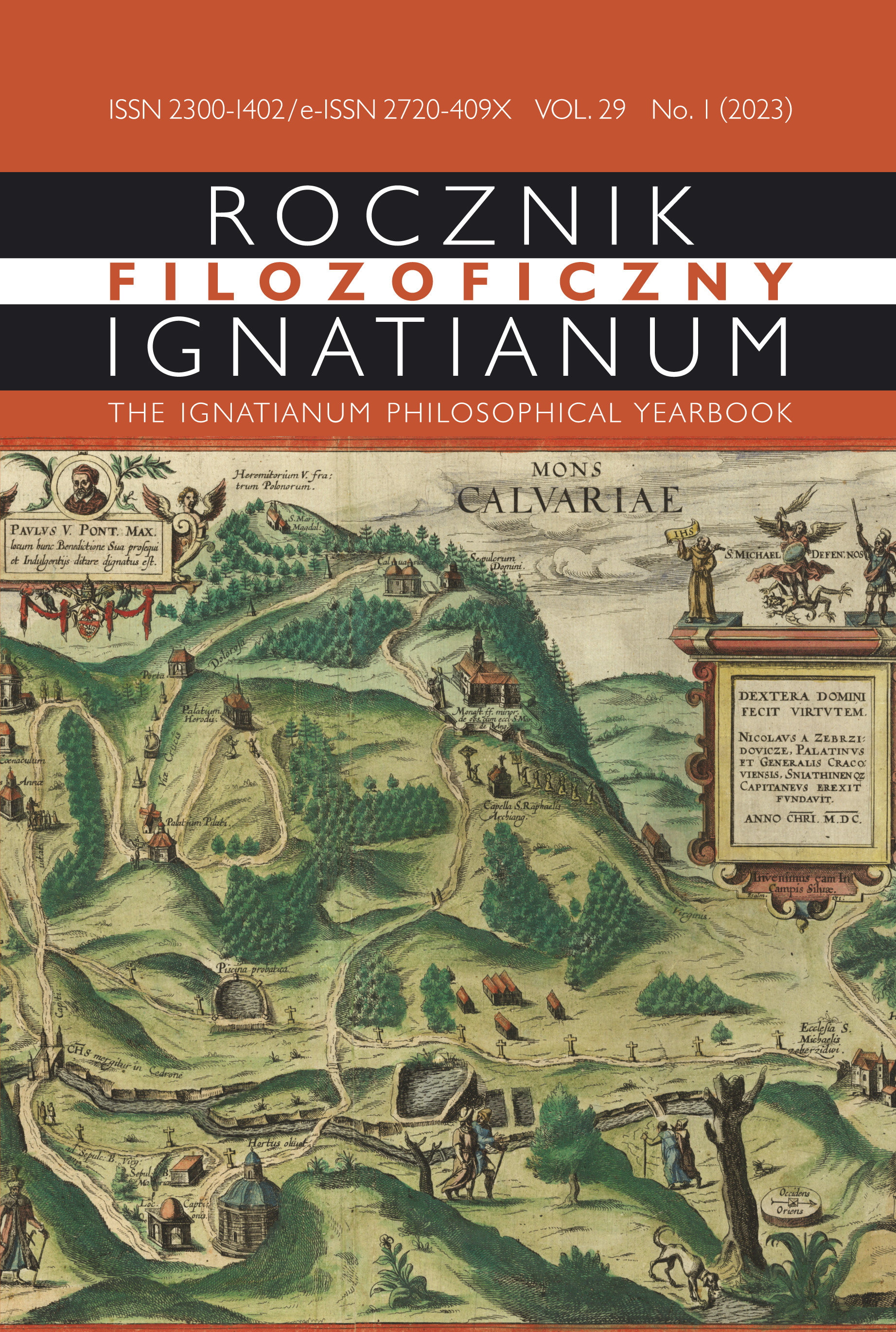On the Second Alleged Marriage of Mikołaj Zebrzydowski
Abstract
Genealogy as a branch of knowledge that studies family ties, both those arising from ancestry and intermarrying, is the one of the auxiliary disciplines of history, which allows looking at a person portrayed in a biography from the perspective of their relations with individual family members, in addition to the place that the person occupied in the family. It is no different in the case of the Cracow Voivode Mikołaj Zebrzydowski (1553–1620), who has been arousing increasing interest among researchers for some time now. Some have focused on his political activities, including primarily the rebellion he ignited, others have studied the voivode’s religiosity and his associated charitable activities, while others have focused on genealogical issues, including showing Zebrzydowski in the circle of his family, both immediate and distant. The last of the above-mentioned trends is the focus of this article, which responds to inaccuracies appearing in the literature regarding the number of marriages of Mikołaj Zebrzydowski. In recently published works there has been information about two marriages of the Voivode of Cracow, the first of which he was said to have entered into with a woman unknown by name, and the second one with Dorota nee Herburt, who died in 1610. These inaccuracies are a consequence of an incorrectly interpreted entry in The Crown Register (Metrica Regni Poloniae), which is discussed in more detail in this article. This is because the phrase ad secundas nuptias, contained in the entry, refers to a hypothetical marriage that could occur in the future, which would unite Mikołaj Zebrzydowski’s prospective widow, Dorota Herburt, with another man. Thus, the entry in the The Crown Register does not refer to the Zebrzydowski’s marital relationships, and thus says nothing about his alleged second marriage.
References
Archiwum Główne Akt Dawnych (AGAD): Metryka Koronna (MK): 135.
Archiwum Narodowe w Krakowie (ANK): Castrensia Cracoviensia (CC) Inscriptiones: 140.
Sumariusz Metryki Koronnej. Seria Nowa, red. Wojciech Krawczuk, t. IV: Księga wpisów podkanclerzego Wojciecha Baranowskiego z okresu marzec 1588– grudzień 1590 (MK 135 z Archiwum Głównego Akt Dawnych w Warszawie), oprac. Wojciech Krawczuk, Michał Kulecki (Warszawa: DiG, 2010).
Dworzak Agata, „Galeria portretowa Zebrzydowskich w klasztorze oo. Bernardynów w Kalwarii Zebrzydowskiej”, w: Mikołaj Zebrzydowski (1553– 1620), palatinus et capitaneus Cracoviensis, fundator et defensor Ecclesiae. W czterechsetną rocznicę śmierci, red. Aleksander Krzysztof Sitnik OFM (Kraków: Wydawnictwo Homini, 2021), 223–254.
Dzięgielewski Jan, Maciszewski Jarema, „Bernard Maciejowski h. Ciołek (1548– 1608), prymas Polski, kardynał”, w: Polski Słownik Biograficzny 19 (Wrocław–Warszawa–Kraków–Gdańsk: Zakład Narodowy im. Ossolińskich – Wydawnictwo Polskiej Akademii Nauk, 1974), 48–52.
Gąsiorowska Patrycja, „Od Jana do Michała. Zarys dziejów rodu Zebrzydowskich”, w: Mikołaj Zebrzydowski (1553-1620), palatinus et capitaneus Cracoviensis, fundator et defensor Ecclesiae. W czterechsetną rocznicę śmierci, red. Aleksander Krzysztof Sitnik OFM (Kraków: Wydawnictwo Homini, 2021), 11–46.
Graff Tomasz, Wołyniec Bartłomiej, Wróbel Elżbieta Elena, Mikołaj Zebrzydowski 1553–1620. Szkic biograficzny (Kraków: Księgarnia Akademicka, 2020). Kowalska Halina, „Leśniowolski Marcin h. Kolumna vel Roch (zm. 1593, kasztelan podlaski)”, w: Polski Słownik Biograficzny 17 (Wrocław–Warszawa–Kraków–Gdańsk: Zakład Narodowy im. Ossolińskich – Wydawnictwo Polskiej Akademii Nauk, 1972), 181–184.
Michalewicz Jerzy, „Kasper Maciejowski herbu Ciołek (zm. 1611), koniuszy koronny, kasztelan lubelski”, w: Polski Słownik Biograficzny 19 (Wrocław– Warszawa–Kraków–Gdańsk: Zakład Narodowy im. Ossolińskich – Wydawnictwo Polskiej Akademii Nauk, 1974), 59–60.
Mikołaj Zebrzydowski (1553-1620), palatinus et capitaneus Cracoviensis, fundator et defensor Ecclesiae. W czterechsetną rocznicę śmierci, red. Aleksander Krzysztof Sitnik OFM (Kraków: Wydawnictwo Homini, 2021).
Moskal Tomasz, „Zebrzydowscy na kartach polskiego wydania dzieła Roberta Bellarmina De Ascensione mentis in Deum per scalas rerum creatarum z 1616 r.”, w: Mikołaj Zebrzydowski (1553–1620), palatinus et capitaneus Cracoviensis, fundator et defensor Ecclesiae. W czterechsetną rocznicę śmierci, red. Aleksander Krzysztof Sitnik OFM (Kraków: Wydawnictwo Homini, 2021), 47–64.
Obłąk Jan, Kardynał Bernard Maciejowski jako biskup krakowski (Olsztyn: Gutgraf, 2008).
Urzędnicy centralni i nadworni Polski XIV–XVIII wieku. Spisy, oprac. Krzysztof Chłapowski et al. (Kórnik: Biblioteka Kórnicka, 1992).
Urzędnicy podlascy XIV–XVIII wieku. Spisy, oprac. Ewa Dubas-Urwanowicz et al. (Kórnik: Biblioteka Kórnicka, 1994).
Urzędnicy województwa bełskiego i ziemi chełmskiej XIV–XVII wieku. Spisy, oprac. Henryk Gmiterek, Ryszard Szczygieł (Kórnik: Biblioteka Kórnicka, 1992).
Urzędnicy województwa krakowskiego XVI–XVIII wieku. Spisy, oprac. Stanisław Cynarski, Alicja Falinowska-Gradowska (Kórnik: Biblioteka Kórnicka, 1990). Urzędnicy województwa lubelskiego XVI–XVIII wieku. Spisy, oprac. Witold Kłaczewski, Wacław Urban (Kórnik: Biblioteka Kórnicka, 1991).
Wisner Henryk, Zygmunt III Waza (Wrocław: Zakład Narodowy im. Ossolińskich, 2006).
Copyright (c) 2023 Jesuit University Ignatianum in Krakow

This work is licensed under a Creative Commons Attribution 4.0 International License.
The Yearbook only accepts materials for publication that are free of all conflicts of interest, and that in no way involve conflicts over authorship, copyright, etc. The Editors will take action against any cases of plagiarizing, ghostwriting1, guest/honorary authorship2, etc. Where co-authored work is concerned, the Author listed first is expected to take responsibility for the submission, and is required to make clear the contributions of all of the Co-Authors involved. In the event of the publication owing its existence to funding dedicated to this purpose, this fact should be made clear: e.g. in any note of thanks/acknowledgement, or in a footnote, etc. Explicit notification should be given of any form of reprinting, with the appropriate evidence of permission to publish being furnished as required. Any impropriety on the part of Authors/Reviewers risks exposing them to appropriate responses from the relevant institutions.
______
1 This term refers to instances of a person who has made an essential contribution being omitted from the list of authors, or from notes conveying gratitude and/or acknowledgement.
2 This occurs when a person who has made either an insignificant contribution or no contribution at all nevertheless appears on the list of authors.





